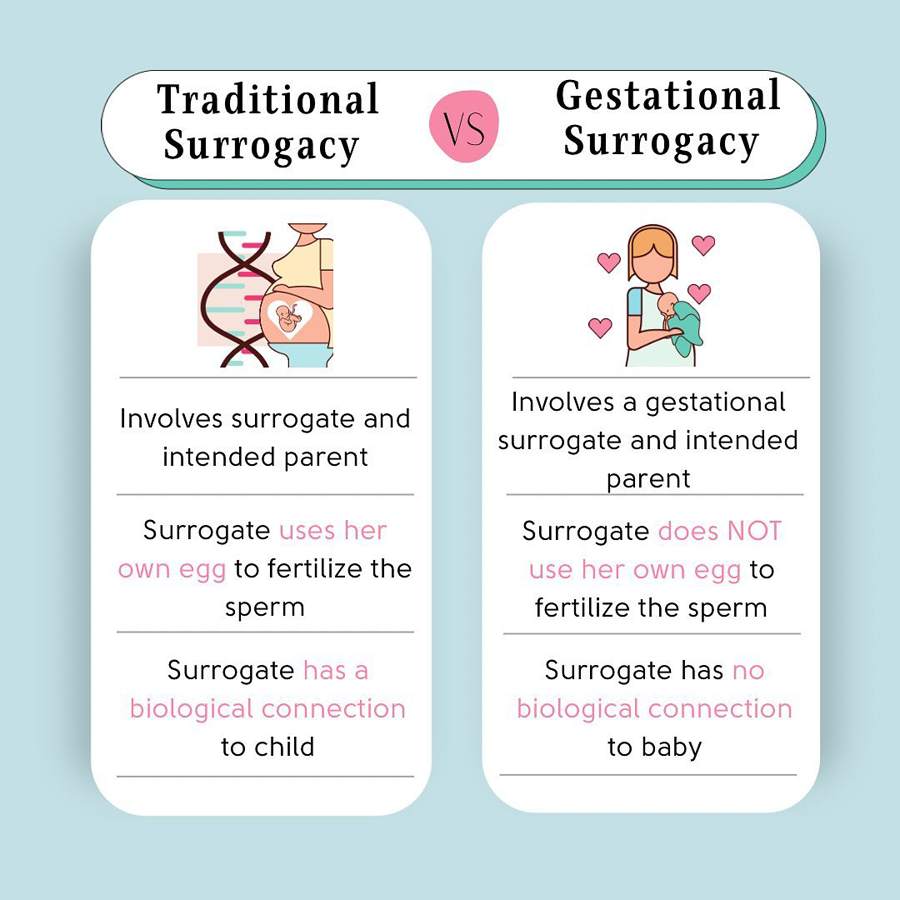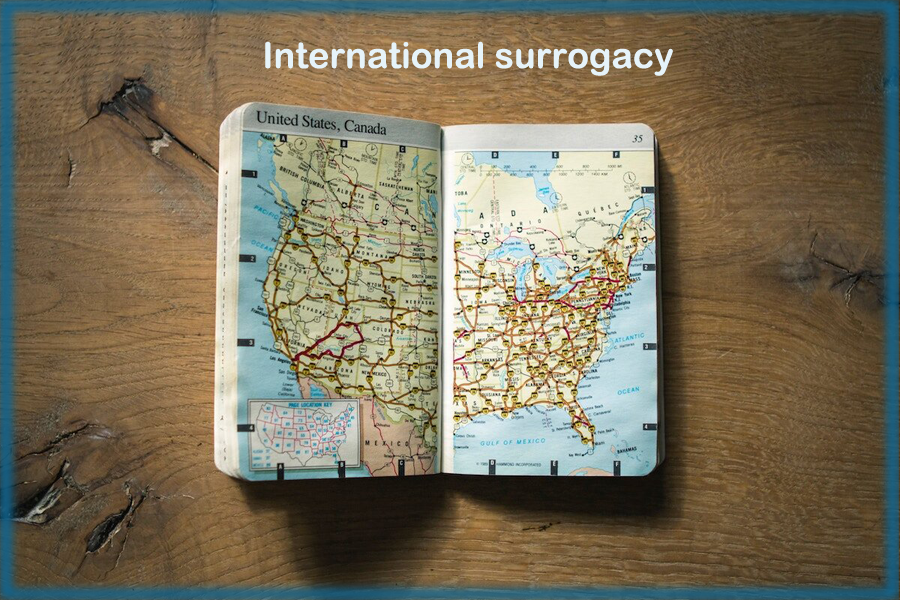Step-by-Step Surrogacy Process in Thailand: A Complete Guide for Intended Parents
Surrogacy has become a trusted pathway to parenthood for couples, singles, and LGBTQ+ families worldwide. Whether you are exploring a surrogacy center in Thailand, looking for reliable options for surrogacy for gay couples or researching specialized support through a surrogacy clinic in Bangkok, understanding the step-by-step journey is essential.
This guide breaks the entire surrogacy process into simple, clear, and manageable stages—from choosing a country to holding your baby for the first time.
Understanding Surrogacy: A Simple Introduction
Surrogacy is a medical and legal arrangement where a woman (the surrogate) carries and delivers a child for intended parents. It involves advanced reproductive technology (ART), usually IVF, to create an embryo using the intended parents’ or donors’ genetic material.
Intended parents choose surrogacy for many reasons:
- Infertility or medical complications
- Same-sex couples wanting to build a family
- Single parents wanting genetic connection
- Previous pregnancy challenges
Countries like Thailand are popular because of their medical standards, modern technology, and highly professional fertility specialists. Many parents especially explore gay surrogacy in Thailand due to accessible programs and supportive clinics.
Step-by-Step Surrogacy Process
Below is the complete process, explained in simple language for beginners.
Step 1: Choosing the Right Country for Surrogacy
The first major decision is selecting a country where surrogacy is legal, ethical, and well-regulated. Every destination has different rules regarding eligibility, cost, and parental rights.
Why Thailand is a top choice?
- Advanced IVF technology
- Internationally trained fertility doctors
- Many reputable agencies and clinics
- Options for surrogacy for gay couples in Thailand through ethical cross-border programs
- Supportive medical environment
Parents seeking affordable and reliable services often consider a surrogacy center in Thailand as their starting point.
If you’re looking for global options, it is important to understand legal requirements, residency rules, and birth certificate procedures before finalizing the country.
Step 2: Selecting a Surrogacy Clinic or Agency
Once the country is selected, the next step is choosing a trusted clinic or agency. This is crucial because the clinic will guide you throughout the entire journey.
How to choose the best clinic or agency?
- Check medical success rates
- Understand their surrogate screening process
- Look for transparent pricing
- Review legal support services
- Ensure emotional and medical support for the surrogate
- Read testimonials from past parents
In Thailand, many intended parents prefer working with a surrogacy clinic in Bangkok due to its world-class medical facilities, advanced laboratories, multilingual staff, and easy international travel access.
Step 3: Initial Consultation & Case Assessment
After selecting the clinic/agency, you begin with an initial consultation.
What happens during this stage?
- You share your medical history
- Clinic reviews fertility challenges
- Options like egg/sperm donation are discussed
- You understand the timeline and cost
- The legal framework is explained
- A personalized surrogacy plan is created
This is when you get a clear picture of what your surrogacy journey will look like.
Step 4: Selecting the Surrogate Mother
Matching the right surrogate is one of the most sensitive and important steps.
How clinics screen surrogates?
- Medical examinations
- Psychological evaluation
- Background checks
- Pregnancy history review
- Lifestyle assessment
A surrogacy center in Thailand or an international agency typically has a pool of pre-screened surrogate mothers who meet all medical and legal standards.
Intended parents may review profiles, understand their background, and choose a surrogate who feels right for them. Some programs allow video meetings with the surrogate.
Step 5: Medical Screening for Intended Parents
Before IVF begins, intended parents undergo medical testing to ensure they are ready for the procedure.
Tests may include:
- Hormone evaluation (for intended mother or egg donor)
- Semen analysis
- Infectious disease screening
- Ultrasound and ovarian reserve test
- Blood grouping and immunity screening
These tests help fertility specialists create the best IVF plan possible.
Step 6: IVF Process and Embryo Creation
This is a key medical stage in the surrogacy journey.
Steps involved in IVF:
- Ovarian stimulation (for egg retrieval)
- Egg retrieval from the intended mother or donor
- Sperm collection from the intended father or donor
- Fertilization in the laboratory
- Embryo development and monitoring
- Embryo grading and selection
The clinic creates healthy embryos with the highest chance of successful pregnancy.
For parents exploring surrogacy for gay couples in Thailand, IVF may involve an egg donor combined with sperm from one or both partners. Clinics ensure the process is private, safe, and transparent.
Step 7: Embryo Transfer to the Surrogate
When embryos reach the blastocyst stage (usually day 5), the fertility doctor transfers the best-quality embryo into the surrogate’s uterus.
After embryo transfer:
- Surrogate receives hormonal support
- She follows light activity guidelines
- A pregnancy test is done after 10–12 days
This stage is filled with hope and anticipation for intended parents.
Step 8: Pregnancy Care & Monitoring
The surrogate receives the highest level of prenatal care to ensure a smooth, healthy pregnancy.
Prenatal care includes:
- Regular ultrasounds
- Blood tests
- Medical checkups
- Diet and lifestyle guidance
- Emotional support
A reputable surrogacy center in Thailand or a surrogacy clinic in Bangkok provides comprehensive support, ensuring the surrogate’s safety and comfort throughout the pregnancy.
Intended parents receive monthly reports, ultrasound videos, and updates. In many programs, parents can even attend major checkups through video calls.
Step 9: Preparing for Delivery & Birth Plan
As the due date approaches, the clinic, hospital, and legal team coordinate to create a clear delivery plan.
This includes:
- Hospital selection
- Birth plan preferences
- Travel planning for international parents
- Pre-birth legal paperwork
- Insurance coverage for surrogate and baby
Intended parents usually travel close to the due date to welcome their child.
Step 10: Baby’s Birth and Immediate Care
This is the most emotional and rewarding stage. After birth:
- The baby is handed to the intended parents
- Newborn checkups are conducted
- Hospital completes discharge procedures
- The surrogate receives medical care and recovery support
Parents can finally spend time bonding with their newborn.
Step 11: Post-Birth Legal Process & Documentation
The final stage includes securing legal parenthood and arranging travel documents.
This may include:
- Birth certificate issuance
- DNA testing (if required by your country)
- Parental orders or legal agreements
- Passport and travel documentation for the baby
Clinics and agencies provide full legal assistance to ensure a hassle-free process.
This step ensures that you return home safely with your baby as the legal parent(s).
Final Thoughts
Surrogacy is an emotional and life-changing journey. Understanding the complete step-by-step surrogacy process helps intended parents prepare for every stage with confidence and clarity.
Whether you are considering a surrogacy center or researching surrogacy for gay couples in Thailand or exploring a trusted surrogacy clinic in Bangkok, proper guidance, medical expertise, and legal support can make your path to parenthood smooth and joyful.


























